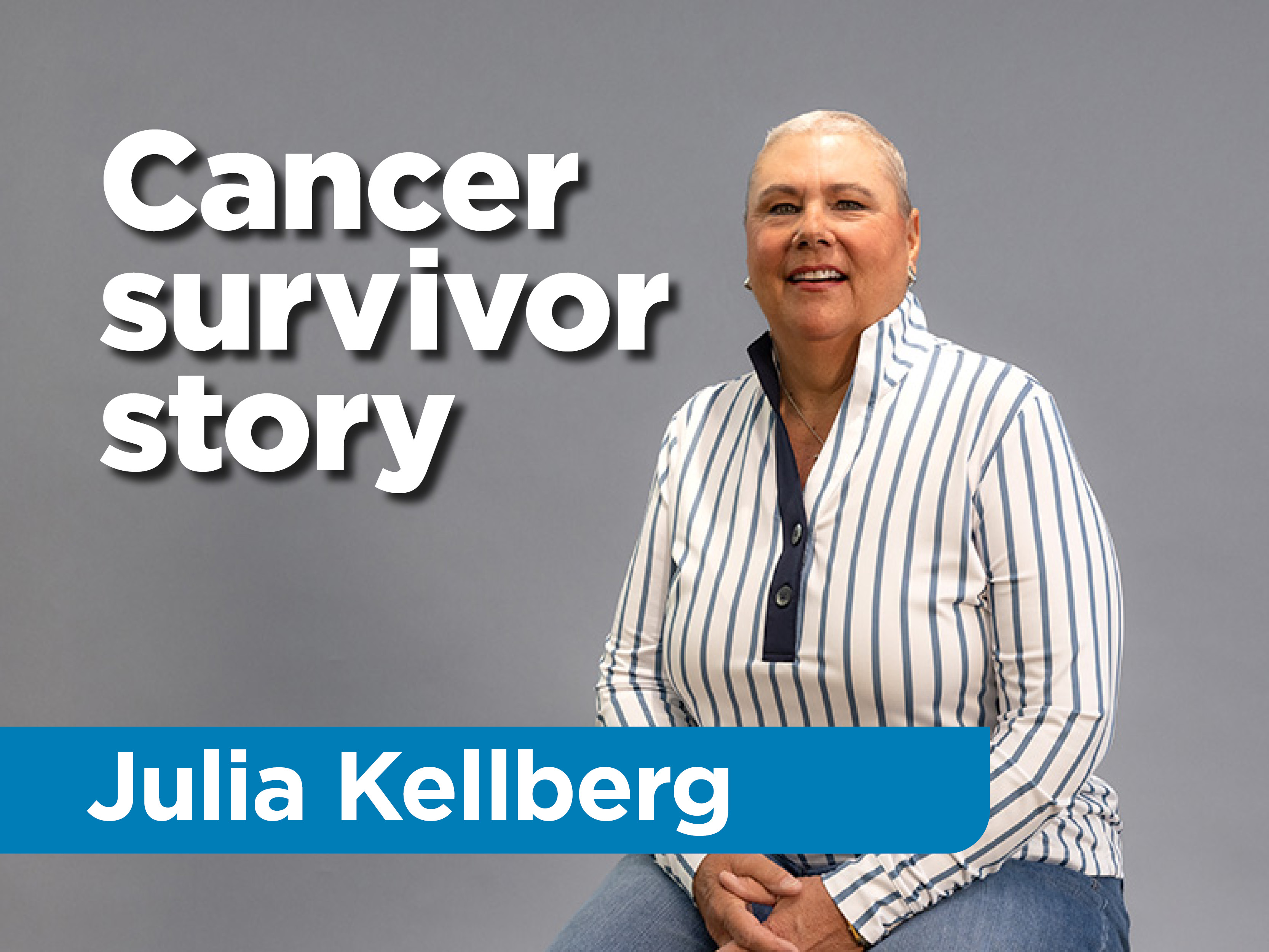Back on the Links: One Woman’s Triumph Over Stage 4 Lymphoma
Cancer CarePosted:

When Julia Kellberg first noticed back pain on the golf course in June, she never imagined it could be a sign of cancer. But soon after, testing revealed Julia had stage 4 lymphoma – a cancer originating in the lymph system where white blood cells form.
“It’s a scary diagnosis because unless you’ve had a family member or friend go through it, you don’t know what to expect,” Julia says.
What is lymphoma?
The lymph system is a network of vessels, nodes and organs that carries infection-fighting white blood cells throughout the body. Lymphoma begins when white blood cells transform abnormally and multiply out of control. In lymphoma, these abnormal cells spread from lymph nodes to other organs. Julia’s cancer had already advanced beyond her lymph nodes when caught.
While the exact cause of lymphoma is unknown, several risk factors can increase the chances of developing the disease, including age, gender, family history, and past Epstein-Barr viral infections.
Lymphoma signs and symptoms
Lymphomas are one of the most common cancers of our immune system, making up almost 5 percent of all cancers. Common symptoms of the disease include persistent fevers, drenching night sweats, unintentional weight loss, and generalized or localized swelling of the lymph nodes.
If you experience any of these symptoms and they don’t go away, check with your doctor.
Lymphoma treatment
As it was in Julia’s case, the standard treatment for lymphoma is chemotherapy to kill cancerous lymph cells. Julia persevered through five grueling months of chemotherapy. She credits her resilient spirit and strong support system of family and friends who drove her to appointments and errands.
“Anytime I needed to go anywhere, someone had to take me,” she says. “They all stepped up and took me to doctors’ appointments, grocery stores and Costco — all of those places you end up needing to go.”
By the fall season, Julia was declared cancer-free – a major win. But the battle wasn’t over. The side effects of cancer treatment had taken a toll, leaving Julia fatigued and struggling to climb stairs or walk long distances.
“Going upstairs, walking for any period of time was difficult. Not that I felt bad. I just didn't have the strength,” she says.
Determined to regain her strength, Julia enrolled in Lee Health’s Cancer Rehabilitation program, which helps patients overcome or manage the physical, mobility, and cognitive problems. Trained rehabilitation professionals work with patients like Julia during treatment, follow-up care, or long-term survivorship.
WATCH: Lee Health cancer rehab services: live your best life after cancer
Julia’s goal was to get back on the golf course. Her cancer rehabilitation therapist, Caroline Lambe, PT, tailored a rehab plan to help her reach that goal.
They started with mat exercises to rebuild Julia’s core strength. Over time, Caroline progressed Julia to more dynamic movements, including sitting, stair climbing, walking, and balancing – carefully calibrated to improve stamina and coordination without overexertion.
“That allowed me to start picking up a golf club again because the first time I did, I could barely pick up a sand wedge; it was so heavy,” Julia says.
Within months, Julia had made tremendous gains. “Months later, I'm playing golf three days a week. I'm climbing stairs. I'm walking correctly. I feel pretty good. I don't have all my strength yet, but it's coming, and I feel fantastic,” Julia says.
WATCH: Lee Health’s cancer rehab program helps Julia golf again
Julia is grateful for the comprehensive cancer care and rehabilitation she received.
“I get emotional about this journey. I’m so blessed. The team around me helped me be here today.”
Julia now cherishes simple joys like walking and playing golf, knowing her prognosis could have easily been grimmer. Though the road was long, she is proudly a stage 4 cancer conqueror – an inspiration to all chasing the odds.
Cancer Rehabilitation Program at Lee Health
The Cancer Rehabilitation Program at Lee Health provides comprehensive and coordinated outpatient rehabilitation from a multi-disciplinary team of cancer-certified clinicians. Cancer rehabilitation is available at 11 Lee Health outpatient rehabilitation clinics.
To make a free appointment with the Cancer Rehabilitation Program, call 239-343-9595. You can also ask your oncologist or physician for a referral to the program. Each referral includes a free rehabilitation navigation interview in person or by phone.
For more information, email Denise Pfeiffer, rehabilitation program navigator, at denise.pfeiffer@leehealth.org.

